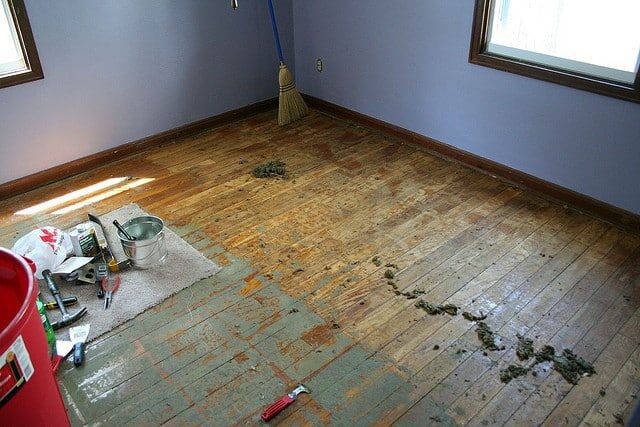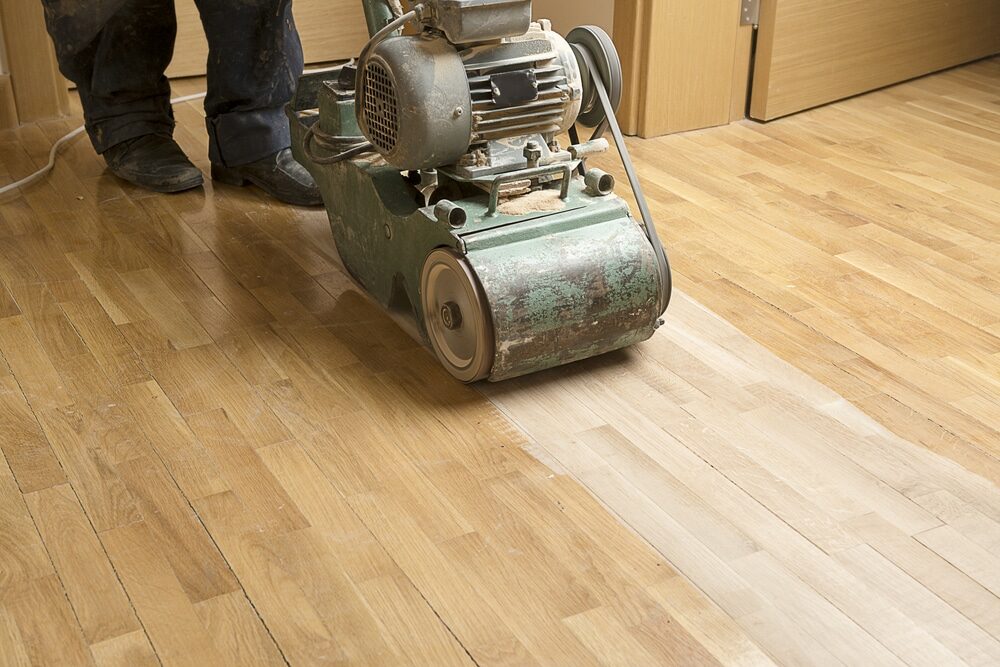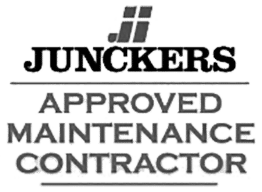London:
Nationwide:
When Your Flooring Contractor Falls Short: What’s Your Next Step?
Posted on December 8, 2023
Wood Flooring
When Your Flooring Contractor Doesn’t Meet Expectations: What Should You Do Next?
Your home is a reflection of your personal style and a significant investment. When you decide to renovate wood floor or upgrade your space, selecting the right flooring contractor is paramount. These professionals are entrusted with turning your flooring dreams into a reality, but what happens when they fall short of your expectations? In this comprehensive guide, we’ll explore the common challenges that homeowners face when their flooring contractor doesn’t meet the mark and provide you with the essential steps to take in such situations.
Flooring projects can be transformative, breathing new life into your living spaces and enhancing the value of your property. Whether you’re replacing outdated carpets with sleek hardwood or revitalizing your bathroom with elegant tiles, the success of your project hinges on the skills, integrity, and professionalism of your chosen contractor.
Unfortunately, not all flooring contractors deliver on their promises. You may encounter a range of issues, from substandard workmanship and communication breakdowns to budget overruns and missed deadlines. These problems can be frustrating, stressful, and financially draining, leaving you wondering, “What’s my next step?”
This guide aims to empower homeowners like you by providing a roadmap to navigate the complexities of dealing with a flooring contractor who falls short. We will delve into the warning signs that indicate a problem with your contractor, explore the initial steps you should take when issues arise, and offer strategies to seek resolution. Additionally, we’ll discuss the possibility of finding a new contractor to salvage your project and share valuable insights on preventing such issues in future endeavors.
Your Wood Floor restoration journey should be a rewarding experience, and while setbacks can be disheartening, they don’t have to define your project’s outcome. By the time you finish reading this guide, you’ll have a clear understanding of how to take control of your flooring project, protect your investment, and move forward with confidence, ensuring that your dream floors become a reality. So, let’s embark on this empowering journey together and explore what you can do when your flooring contractor falls short.
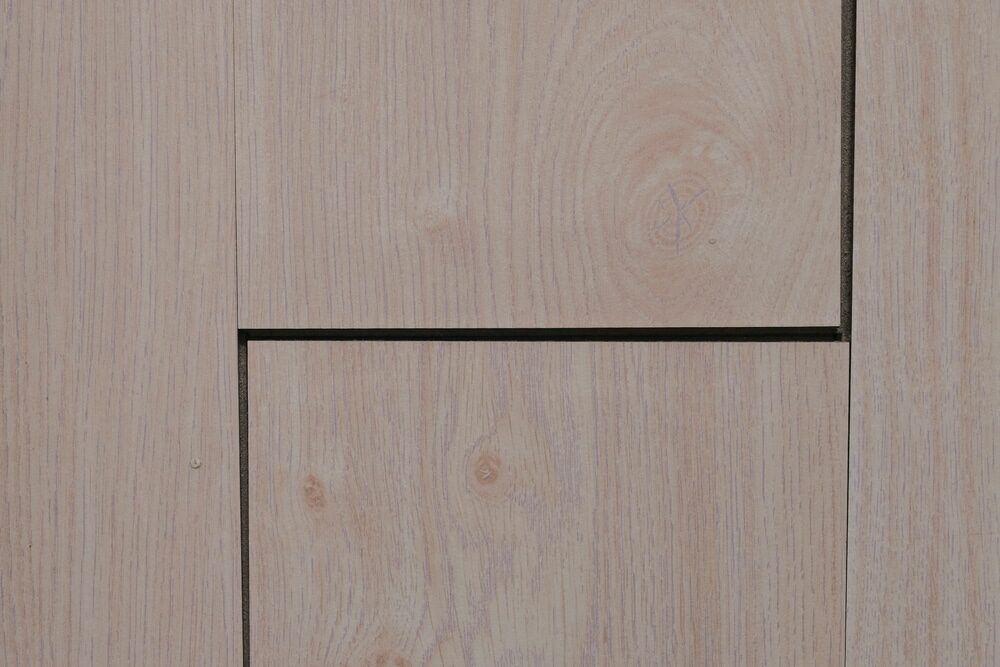
Signs of a problem
Recognizing the warning signs that something is amiss with your flooring project is the first step in addressing issues with your contractor. Identifying these signs early can help you take corrective action before problems escalate. Here are some common signs that may indicate your flooring contractor is falling short of expectations:
Poor Communication:
Effective communication is the cornerstone of any successful project. If your contractor is consistently unresponsive to your calls or emails, fails to keep you updated on project progress, or doesn’t address your concerns and questions promptly, it’s a sign of trouble. Clear and open communication is essential to ensuring your project stays on track.
Missed Deadlines:
Timelines are crucial in flooring projects, especially if you have a specific date in mind for completing the renovation. If your contractor repeatedly misses deadlines or fails to provide a reasonable explanation for delays, it can lead to frustration and project disruptions.
Quality Issues:
The quality of workmanship is paramount in flooring projects. Signs of subpar work can include uneven floor surfaces, visible gaps between tiles or planks, improperly aligned patterns, and imperfections in the finish. If you notice any of these issues, it’s essential to address them promptly to prevent further deterioration.

Budget Overruns:
Staying within your budget is vital to the financial success of your project. If your contractor consistently exceeds the agreed-upon budget without clear explanations or without prior discussions, it can strain your finances and erode trust.
Lack of Proper Licensing and Insurance:
A professional flooring contractor should possess the necessary licenses and insurance coverage. If your contractor cannot provide proof of these credentials or attempts to evade questions about them, it’s a red flag. Licensing and insurance protect both you and the contractor in case of accidents or disputes.
Subpar Materials:
The choice of materials significantly impacts the longevity and quality of your flooring. If you suspect that your contractor is using lower-quality materials than initially agreed upon, it’s a sign of dishonesty and can result in a substandard final product.
Shoddy Installation:
Improper installation techniques can lead to a host of problems, including uneven surfaces, gaps, and premature wear and tear. If you observe signs of careless or hasty installation, it’s crucial to address these issues immediately to prevent further damage.
Disregard for Specifications:
Your project likely had specific specifications and expectations outlined in the contract. If your contractor deviates from these specifications without your consent or fails to follow the agreed-upon design and patterns, it’s a breach of contract and should be addressed.
Hidden Costs:
Some contractors may attempt to introduce hidden costs, such as additional labor charges or material expenses, without clear justification. Transparent pricing is essential to maintaining trust throughout the project.
When you encounter one or more of these signs, it’s essential to take action promptly to address the issues with your flooring contractor. In the following sections, we’ll discuss the initial steps you can take to address these problems and ensure your flooring project gets back on track.

Initial Steps
When you’ve identified signs of trouble with your flooring contractor, it’s crucial to take immediate action to address the issues and protect your investment. The following steps will guide your handling of the situation effectively:
Open a Line of Communication:
The first and most critical step is to communicate your concerns with your contractor. Schedule a face-to-face meeting or a phone call to discuss the problems you’ve observed. Be polite but firm in expressing your dissatisfaction and your expectations for resolution. A constructive conversation can often resolve misunderstandings or miscommunications.

Document Everything:
Keep a meticulous record of all communication and interactions with your contractor. This includes emails, text messages, phone call logs, and in-person meetings. These records serve as evidence in case a dispute escalates and can help demonstrate your commitment to resolving the issues professionally.
Review the contract:
Carefully revisit the contract you signed with your flooring contractor. Pay close attention to the terms and conditions, project specifications, timelines, and payment agreements. Understanding the contract thoroughly is crucial in determining whether the contractor is in breach of any agreed-upon terms.

Identify specific issues:
Be clear about the specific problems you’ve encountered. Prepare a list of issues with photographic evidence if possible. This documentation will be valuable when discussing solutions with your contractor or seeking legal advice if necessary.
Request Repairs or Corrections:
If the issues are fixable, ask your contractor to provide a plan for correcting the problems. Request a written proposal outlining the steps they will take to address the issues and the expected timeline for completion. Ensure that the proposed solution aligns with the original project specifications.
Negotiate a Resolution:
Engage in negotiations with your contractor to find mutually agreeable solutions. This may involve compromising on certain aspects of the project, such as adjustments to the timeline or an equitable resolution for budget overruns. Always get any negotiated changes in writing and signed by both parties to avoid future disputes.
Consider Mediation:
If communication with your contractor breaks down or if you cannot reach a resolution through negotiation, consider involving a mediator. A professional mediator can facilitate discussions between you and the contractor to help find common ground and reach a settlement. Mediation is often a less costly and time-consuming alternative to legal action.
Consult an Attorney:
If the problems persist and you believe your contractor is in breach of contract or engaged in fraudulent practices, consult with an attorney specializing in construction and contract law. An attorney can provide legal advice, assess the strength of your case, and guide you on the best course of action.
Keep Payments in Check:
Until you are satisfied with the resolution or until any disputes are resolved, consider withholding payments to your contractor, especially if they have not fulfilled their contractual obligations. Be sure to consult your contract and local laws to understand your rights and responsibilities regarding payments.
Maintain Professionalism:
Throughout the process, maintain a professional and courteous demeanor. Avoid engaging in confrontations or making emotional outbursts, as this can hinder the resolution process. Maintain a written record of all communications with your contractor to demonstrate your commitment to a fair and reasonable resolution.
Taking these initial steps is essential to addressing issues with your flooring contractor. Effective communication, documentation, and a willingness to resolve problems can often lead to successful outcomes. If these efforts prove unsuccessful, you may need to explore legal avenues or find a new contractor, which we will discuss in the following sections.

Seeking Resolution
When communication with your flooring contractor has not yielded the desired results and you find yourself in a situation where issues persist, it becomes crucial to explore alternative avenues for seeking resolution. Here are the steps to consider:
Request Repairs or Corrections (Continued):
If you haven’t already done so during your initial steps, make a formal request for repairs or corrections in writing. Detail the specific issues you want the contractor to address and provide a reasonable timeframe for completion. Be sure to maintain a copy of this request for your records.
Invoke Contract Provisions:
Review your contract for any provisions related to dispute resolution or conflicts. Some contracts include clauses that outline a specific process for handling disagreements between parties. If such clauses exist, follow the prescribed steps accordingly.
Consider Mediation:
Mediation is a viable option when communication between you and the contractor has broken down. A professional mediator can facilitate discussions, help identify common ground, and guide both parties toward a mutually agreeable resolution. Mediation is typically less expensive and time-consuming than pursuing legal action.
Hiring a Mediator:
To initiate mediation, you’ll need to hire a qualified mediator who specializes in construction or contract disputes. Look for mediators accredited by reputable organizations and ensure they have experience handling flooring-related issues. The mediator will work with both parties to schedule and conduct mediation sessions.
Benefits of Mediation:
Mediation offers several advantages, including:
- Confidentiality: Discussions held during mediation are typically confidential, allowing both parties to speak openly.
- Cost-effective: Mediation costs are often lower than those associated with legal proceedings.
- Speed: Mediation can lead to faster resolutions compared to lengthy court battles.
- Control: You and the contractor retain control over the outcome, rather than relying on a judge’s decision.
- Preserves Relationships: Mediation can help preserve professional relationships, which may be essential if you plan to hire a different contractor to complete the project.
Understanding Your Legal Rights:
If mediation proves unsuccessful, or if you believe your contractor is in clear breach of contract or engaged in fraudulent practices, it may be time to consult with an attorney who specializes in construction and contract law. An attorney can provide legal advice, assess the strength of your case, and guide you on the best course of action.
Legal Recourse and Lawsuits:
Filing a lawsuit against your flooring contractor should be considered a last resort. Litigation can be time-consuming, expensive, and emotionally draining. However, it may be necessary to protect your rights and recover damages if other methods fail. Your attorney will help you prepare a legal case, gather evidence, and represent your interests in court.
Alternative Dispute Resolution (ADR):
In some cases, before going to court, parties may explore alternative dispute resolution methods, such as arbitration. Arbitration involves a neutral third party who makes a binding decision on the dispute. While similar to a court proceeding, arbitration can be faster and less formal than a traditional trial.
Small Claims Court:
If the dispute involves a relatively small amount of money, you may consider pursuing it in small claims court. Small claims court is designed for disputes of lower monetary value and is typically less formal than other court proceedings.
Keep Records:
Throughout the dispute resolution process, maintain thorough records of all communication, documentation, and transactions related to your flooring project. These records are essential for building your case, whether it involves mediation, arbitration, or legal action.
Remember that each situation is unique, and the appropriate resolution method will depend on the specific circumstances of your dispute. Seeking legal counsel early in the process can help you make informed decisions about the best course of action. While seeking resolution can be challenging, it is a necessary step to protect your investment and ensure that your flooring project ultimately meets your expectations.
Finding a new contractor
In some cases, the issues with your flooring contractor may have reached a point where it’s no longer feasible to continue working with them. If you find yourself in this situation, you’ll need to explore the possibility of finding a new contractor to salvage your flooring project. Here are the steps to consider:

Assess the Current State of the Project:
Before searching for a new contractor, assess the current state of your flooring project. Identify what has been completed, what issues need to be addressed, and the overall scope of the work that remains. This assessment will help you communicate effectively with potential new contractors.
Review your contract
Revisit the original contract you had with the previous contractor. Pay attention to any termination or cancellation clauses, as well as provisions related to unfinished work and payment. Understanding the contractual obligations and consequences will be crucial in your discussions with a new contractor.
Seek Recommendations and Referrals:
Reach out to friends, family, neighbors, or colleagues who have undertaken similar home improvement projects. They may be able to recommend reputable flooring contractors based on their own positive experiences. Word-of-mouth referrals can be invaluable in finding reliable professionals.
Research Local Contractors:
Conduct online research to identify local flooring contractors with strong reputations. Look for contractors who specialize in the type of flooring you’re installing (e.g., hardwood, tile, or carpet) and have a track record of successful projects. Check online reviews and ratings to gauge customer satisfaction.
Interview Multiple Contractors:
Contact several prospective contractors and schedule in-person meetings or consultations. During these meetings, discuss the scope of your project, your expectations, and any issues you’ve encountered with the previous contractor. Pay attention to their communication skills, professionalism, and willingness to address your concerns.
Check References and Past Work:
Ask each potential contractor for references from past clients. Contact these references to inquire about their experiences, including the quality of work, communication, adherence to timelines, and overall satisfaction. Additionally, request to see examples of the contractor’s past flooring projects.
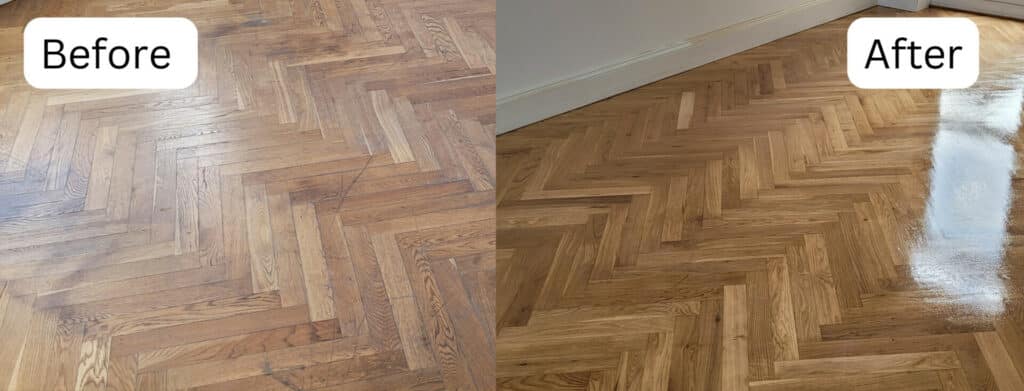
Verify Licensing and Insurance:
Ensure that any contractor you consider is properly licensed and insured. Licensing requirements vary by location, so check with your local authorities to confirm what credentials are necessary. Request proof of insurance, including liability and workers’ compensation coverage, to protect yourself and your property.
Get Detailed Written Quotes:
Request detailed written quotes from the contractors you are seriously considering. These quotes should outline the scope of work, materials to be used, labor costs, estimated timelines, and payment schedules. Having written quotes allows for easy comparison and ensures that both parties have a clear understanding of the project.
Check for Legal and Financial Issues:
Conduct a background check to ensure the contractor has a clean legal and financial history. You can check for any past or pending lawsuits, complaints, or judgments against the contractor. This information can provide insight into their reliability and integrity.
Review the New Contract Carefully:
Once you’ve selected a new contractor, review the contract thoroughly before signing. Ensure that it includes all necessary details, such as project specifications, timelines, payment terms, and dispute resolution procedures. Clarify any questions or concerns with the contractor before proceeding.
Transfer the project safely:
Coordinate with the new contractor to facilitate a smooth transition from the previous contractor’s work to the new contractor’s scope. Provide all relevant project documentation, such as architectural plans, permits, and any completed work inspections, to ensure continuity.
Manage the Project Effectively:
Throughout the project, maintain open communication with the new contractor. Regularly review progress, address any concerns promptly, and keep written records of all project-related discussions and agreements. This proactive approach can help prevent issues from arising.
Finding a new contractor to take over your flooring project can be a challenging but necessary step when dealing with a contractor who has fallen short. By conducting thorough research, obtaining references, and carefully reviewing contracts, you can increase your chances of selecting a reliable professional who will complete your flooring project to your satisfaction. Remember that communication is key to ensuring a successful collaboration with your new contractor.
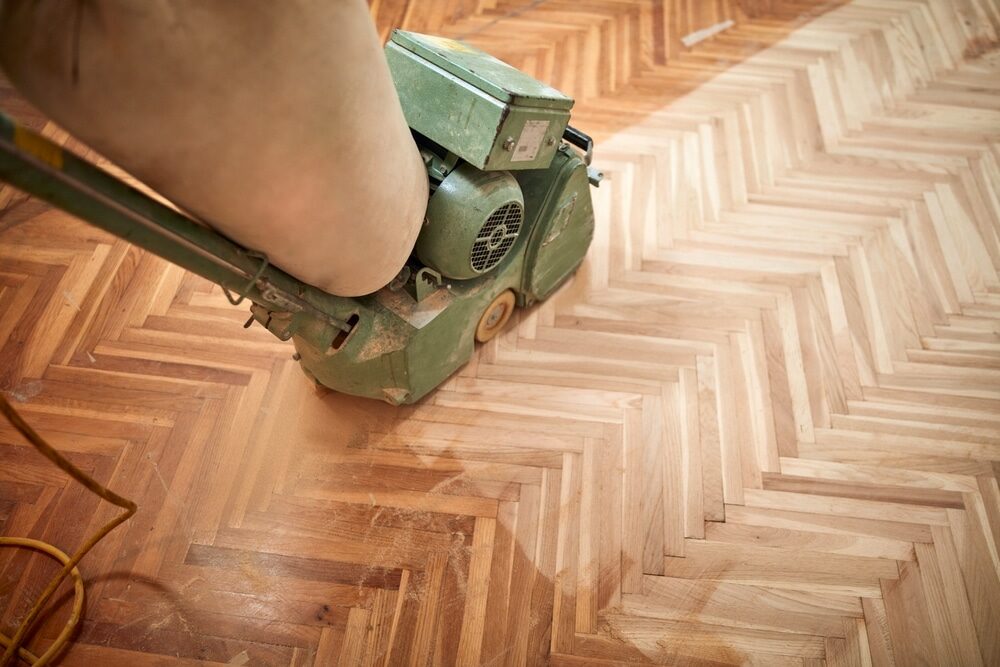
Preventing Future Issues
Dealing with a problematic flooring contractor can be a stressful experience, but there are proactive steps you can take to minimize the chances of encountering similar issues in future home improvement projects. Here are strategies to help you prevent future problems:
Thoroughly vet contractors:
Prioritize due diligence when selecting a contractor. Research their credentials, including licenses, insurance, and certifications. Seek referrals, read reviews, and contact references to gauge their track record. Look for contractors with a strong reputation for quality work and professionalism.
Get Multiple Quotes:
Obtain quotes from multiple contractors for your project. This not only allows you to compare pricing but also gives you insights into the varying approaches and recommendations of different professionals. Be wary of significantly low bids, as they may indicate subpar workmanship or the use of inferior materials.
Check for Legal Compliance:
Verify that your chosen contractor complies with local building codes and regulations. Ensure they secure the necessary permits for your project, and don’t hesitate to check with local authorities for confirmation. A contractor who follows legal requirements is more likely to adhere to professional standards.
Comprehensive Contracts:
Always have a detailed, written contract that outlines all aspects of your project. This should include project specifications, materials to be used, a clear timeline, payment terms, and dispute resolution procedures. A well-structured contract provides both you and the contractor with a clear roadmap for the project.
Clear Communication:
Maintain open and honest communication with your contractor throughout the project. Establish regular check-ins to discuss progress, address concerns, and confirm that the work aligns with your expectations. Promptly address any issues that arise to prevent them from escalating.
Set realistic expectations:
Establish realistic project timelines and budgets from the outset. Avoid rushing contractors to complete work within an unrealistic timeframe, as this can lead to shortcuts and quality issues. A clear understanding of project limitations can reduce stress and misunderstandings.
Regular Inspections:
Periodically inspect the work as it progresses. Verify that the contractor is adhering to the agreed-upon specifications and quality standards. This proactive approach allows you to catch and address any problems early.
Payment Structure:
Establish a clear payment structure that ties payments to specific project milestones or completed work. Avoid making large upfront payments, and retain a portion of the payment until the project is fully completed to your satisfaction. This provides leverage to ensure the contractor fulfills their obligations.
Material Selection:
Be involved in the selection of materials for your project. Discuss material options and their quality with your contractor, and choose those that align with your budget and desired outcome. Ensure that the selected materials meet industry standards.
Project Documentation:
Keep detailed records of all project-related documentation, including contracts, invoices, change orders, and communication with the contractor. These records can serve as evidence in cases of dispute and help ensure accountability.
Follow Up on References:
Don’t hesitate to contact references provided by the contractor. Ask past clients about their experiences, including the contractor’s communication, work quality, and ability to meet deadlines. This firsthand feedback can be invaluable in your decision-making process.
Continuous Learning:
Use your previous experience as a learning opportunity. Reflect on what went wrong with the previous contractor and how similar issues can be prevented in the future. Apply these lessons to future home improvement projects.
Preventing future issues with contractors requires a proactive and informed approach. By conducting thorough research, establishing clear expectations, and maintaining open communication, you can significantly reduce the likelihood of encountering problems with your flooring or other home improvement projects. Investing time and effort upfront can lead to smoother and more successful renovations in the long run.

Conclusion
Dealing with a flooring contractor who falls short of your expectations can be a challenging experience, but it’s not the end of the road for your home improvement project. By following the steps outlined in this guide, you can take control of the situation and work towards a successful resolution.
Remember that communication is key throughout the process. A clear and open dialogue with your contractor, whether to address issues or set expectations, is essential. Document everything, from your conversations and written correspondences to photographs of the work, as this will provide crucial evidence if disputes arise.
Seeking resolution through mediation or legal avenues should be considered when necessary, but always strive to find an amicable solution with your contractor first. Mediation can often help bridge the gap between parties, preserve professional relationships, and save time and money.
If you find it necessary to part ways with your original contractor and seek a replacement, take the time to thoroughly vet new candidates. A well-researched and carefully selected contractor can help you get your project back on track.
Lastly, use your experience as a learning opportunity. Preventing future issues with contractors involves making informed choices, setting realistic expectations, and staying actively involved in your home improvement projects. With the right approach, you can turn setbacks into opportunities for growth and ensure that your flooring dreams become a reality. Your home is your sanctuary, and it deserves the best craftsmanship and attention to detail. By applying the knowledge gained from this guide, you can embark on future projects with confidence, knowing that you’re well-prepared to handle any challenges that may arise.

Sanding
We provide virtually dust-free sanding with our continuous belt machinery with mobile extraction units, giving you a safer environment for your family.
Oiling
This organic finish not only adds beauty to your home but also has exceptional water-repellent characteristics, making it easier to clean and maintain.
Waxing
This natural floor finish offers the softest and most mellow appearance – and leaves your floor able to breath.
Buffing
Using soft buffing machines (and hand-polishing where required) will bring a wonderful sheen to your newly-finished floor.
Repairs
We offer a full assessment of your wooden floors to determine what repairs are needed to provide the perfect working surface for the later stages of sanding, staining and sealing.
Restoration
We offer a comprehensive restoration process designed to address floors that are improperly fitted or damaged over time through wear and tear.
Request a fixed price quote for your wood floor restoration now
Simply enter your postcode below to get started.
Services
Wood Floor Sanding Wood Floor Restoration Wood Floor Scratch Repair Squeaky Wood Floor Repair Parquet Floor Sanding Parquet Floor Restoration Commercial Floor Sanding Church Floor Sanding Community Centre Floor Sanding School Floor Sanding Gap Filling Gap Filling with ResinCopyright © Mr Sander®
Privacy & Cookies Terms & Conditions Complaints Procedure Cancellation Rights Sitemap